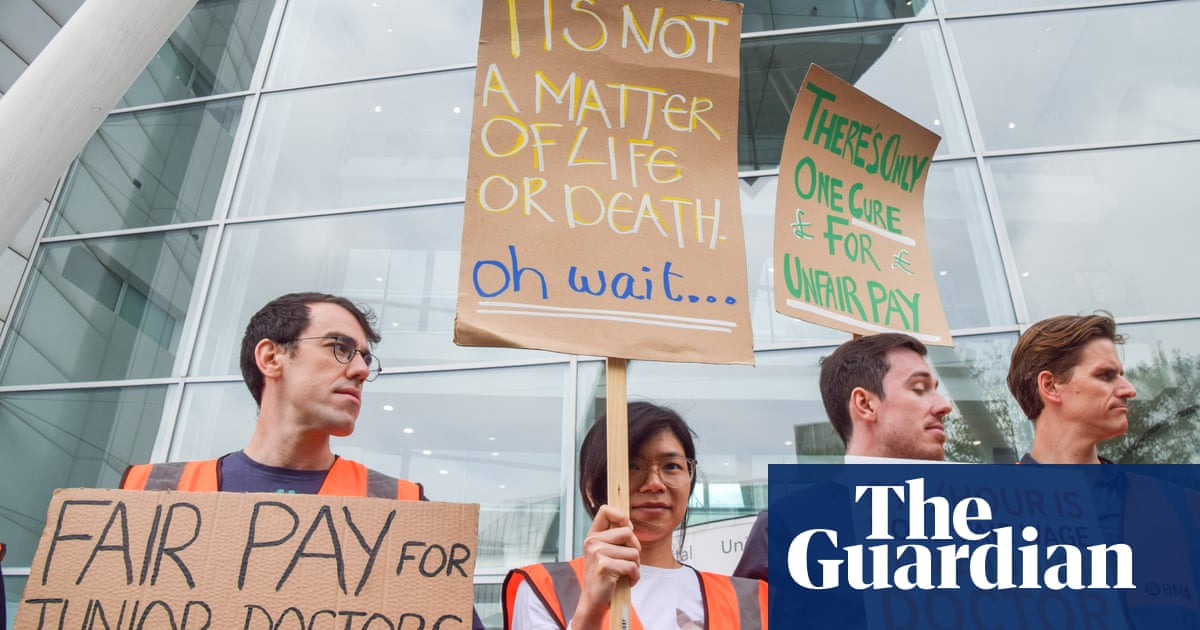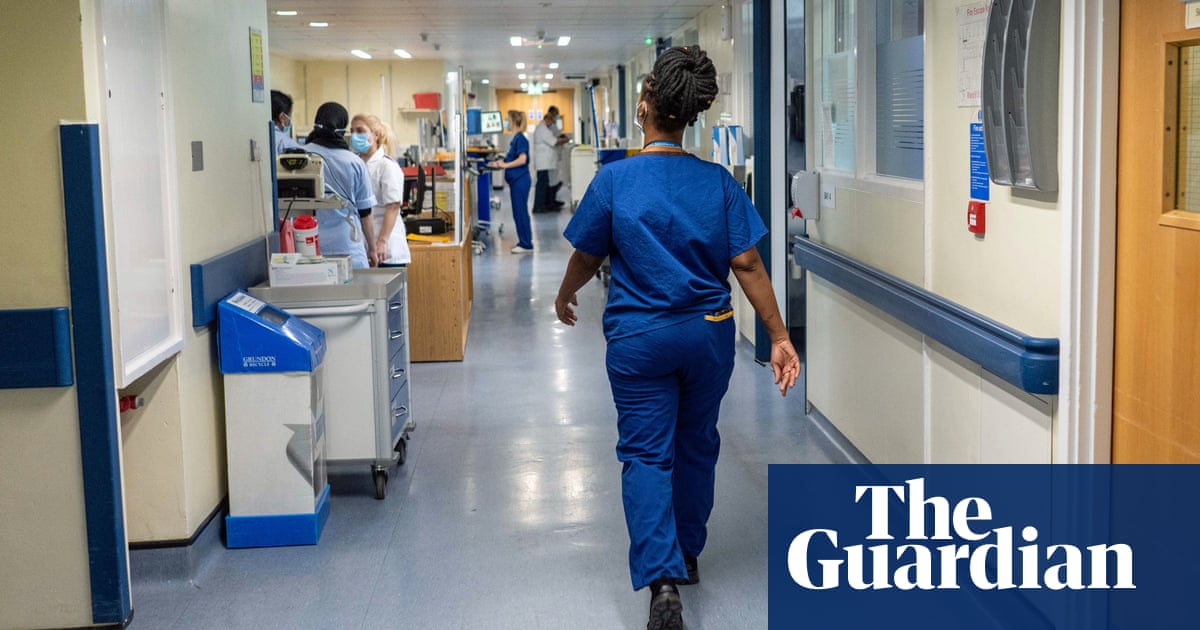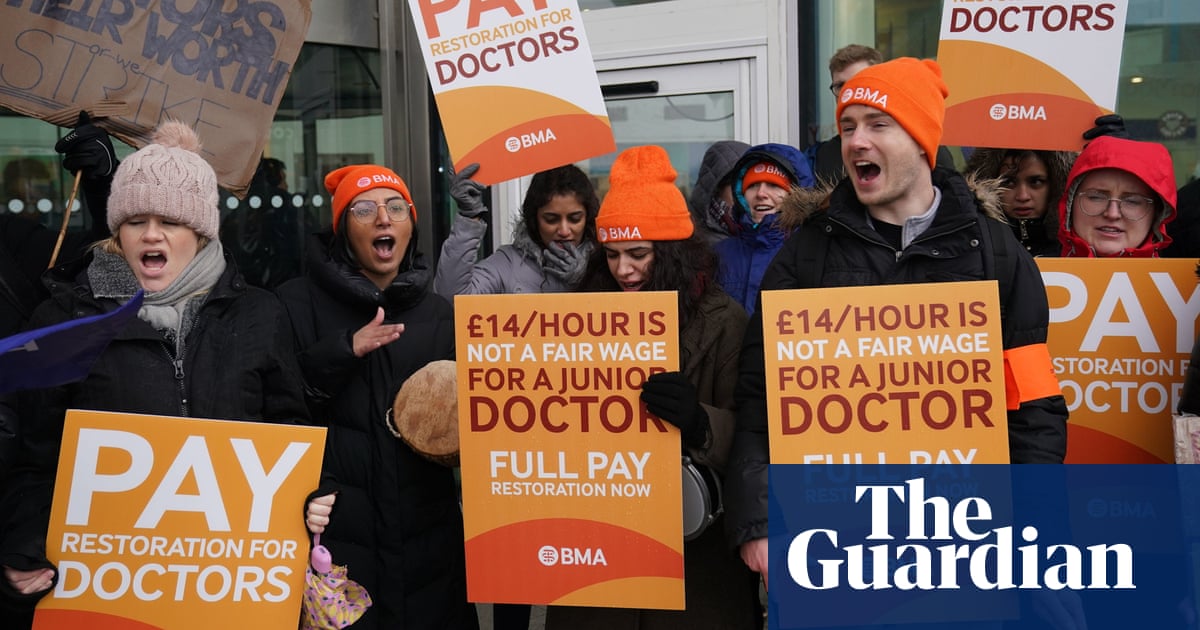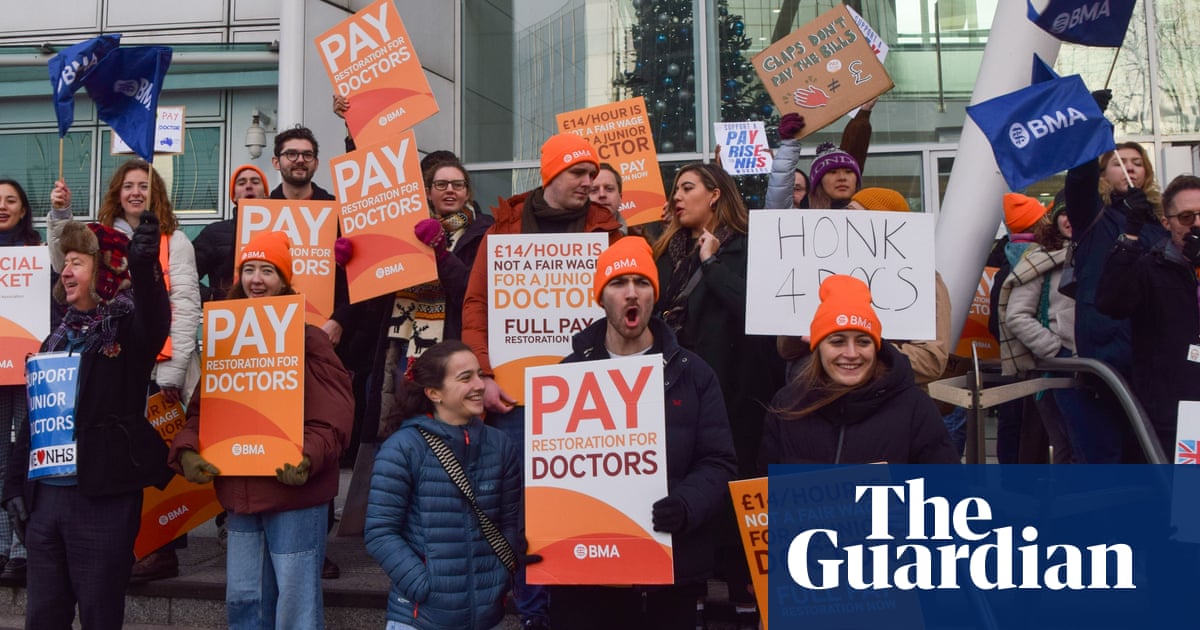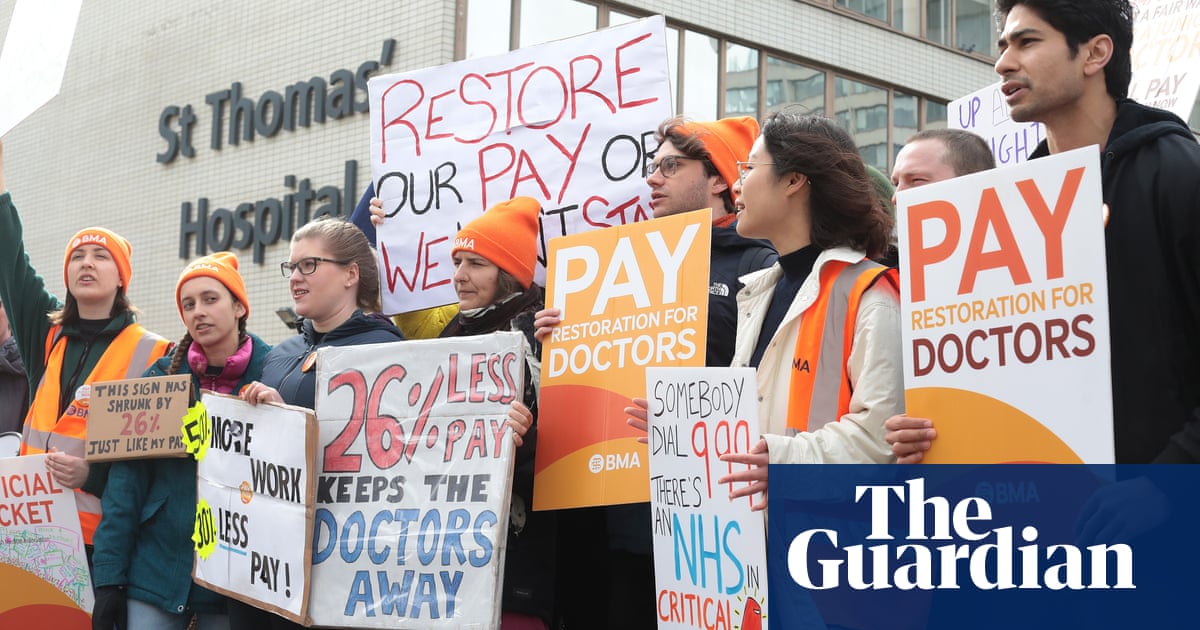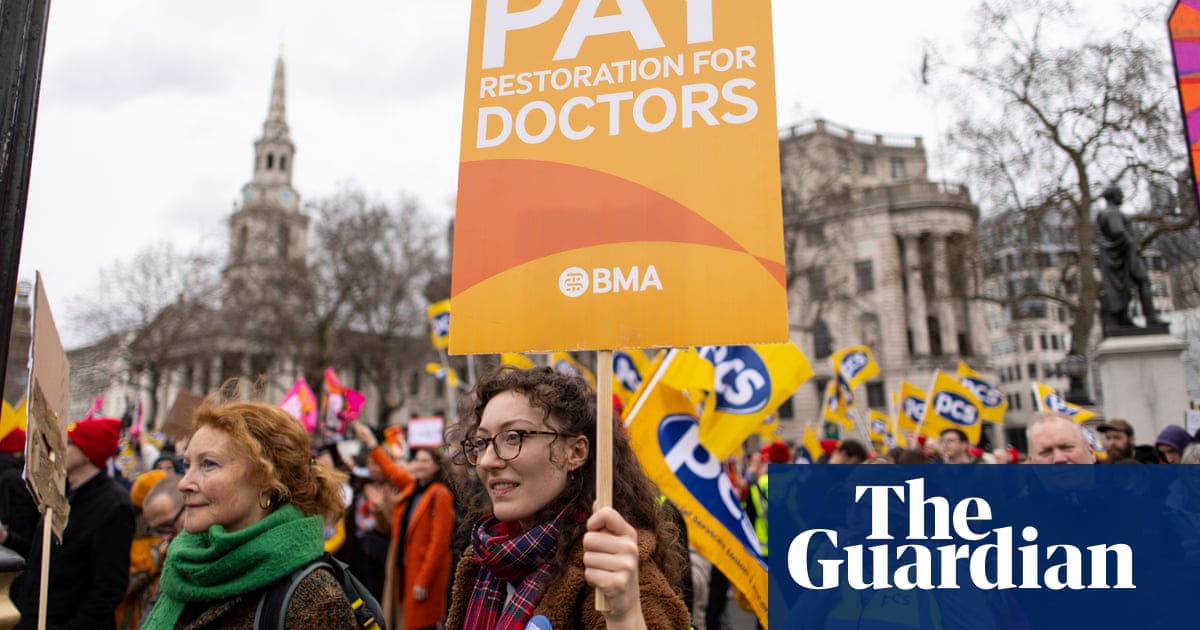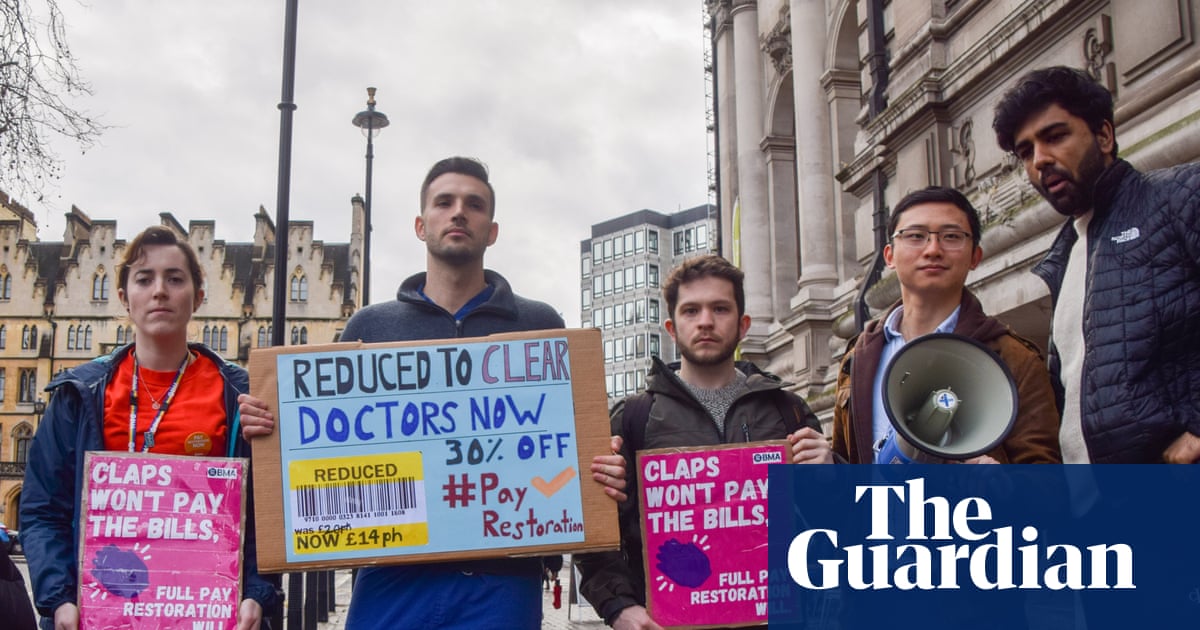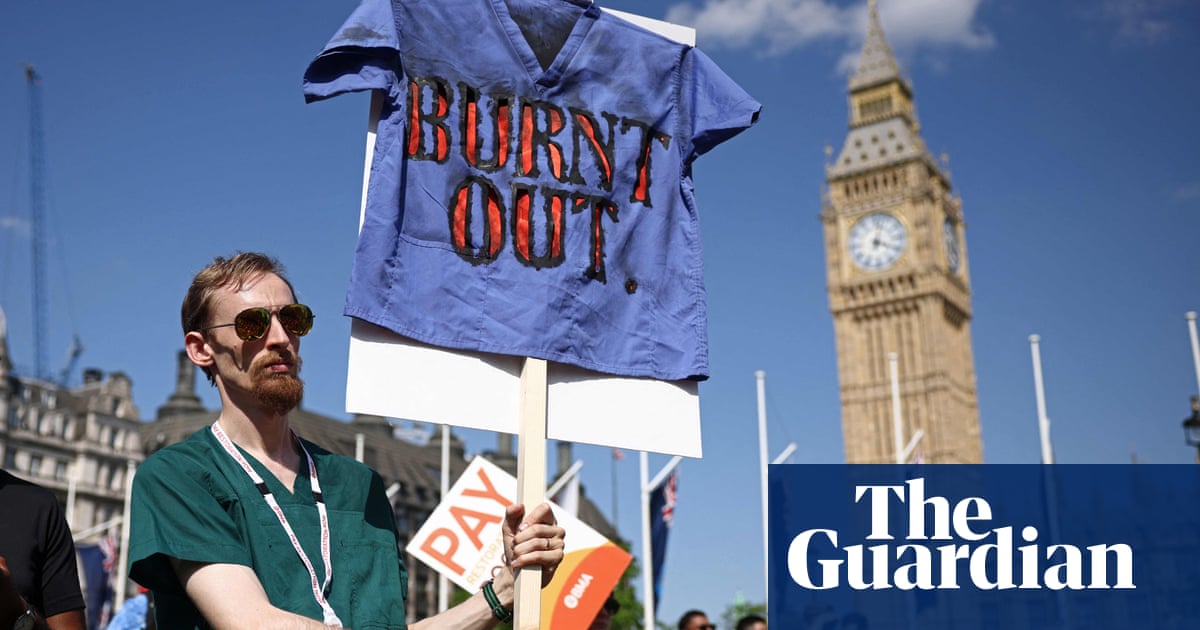
Up to 100,000 patients in England face having their NHS care cancelled days before the general election after junior doctors announced a fresh wave of strike action, with Rishi Sunak saying it appeared to be politically motivated.
Health leaders expressed alarm, warning the five-day strike would jeopardise efforts to tackle the record waiting list and “hit patients hard”.
The British Medical Association said junior doctors would strike from 7am on 27 June until 7am on 2 July. Voters go to the polls on 4 July.
The development will pile pressure on Sunak, who has been accused of holding up a deal over pay, to end the row. If it remains unresolved, he faces the prospect of mass disruption across the NHS days before millions of voters choose the next government.
Answering question at a campaign event in Devon, the prime minister questioned the timing of the strike and said it might have been staged to help Labour.
“On the same day as Labour are having a health day, it does make you slightly ponder the question of if this is politically motivated,” he said. “It’s hard to escape that, given the timing to call a strike during the election campaign, especially as we found a constructive resolution with other NHS workers.
“It’s just the junior doctors who have failed to find a resolution, and that’s in spite of them already being offered a deal worth a 10% increase, and we are prepared to keep talking.”
On Wednesday evening, the BMA denied accusations that it had timed its announcement to coincide with Labour’s health day.
A spokesperson said: “Sunak himself determined the timing of this strike announcement by calling an election one week ago. After that, we gave his government a last opportunity to make a credible offer, and called strikes when it was clear that none was coming.”
In a statement earlier on Wednesday, the BMA junior doctors committee co-chairs, Dr Robert Laurenson and Dr Vivek Trivedi, said: “We made clear to the government that we would strike unless discussions ended in a credible pay offer. For more than 18 months we have been asking Rishi Sunak to put forward proposals to restore the pay junior doctors have lost over the past 15 years – equal to more than a quarter in real terms.”
They said that when they had entered mediation with the government this month they had done so under the impression that “we had a functioning government that would soon be making an offer. Clearly no offer is now forthcoming. Junior doctors are fed up and out of patience.”
Laurenson and Trivedi added that Sunak still had an opportunity to show he cared about the NHS and its workers. “If during this campaign he makes such a public commitment that is acceptable to the BMA’s junior doctors committee, then no strikes need go ahead.”
This will be the 11th strike by junior doctors in this dispute after their first action in March 2023. The last strike by junior doctors – from 24 to 28 February this year – led to 91,048 appointments, operations and procedures being postponed.
Saffron Cordery, the deputy chief executive of NHS Providers, said the announcement was “a worrying escalation” in the row between the government and junior doctors. “This strike will inevitably hit patients hard.”
Matthew Taylor, the chief executive of the NHS Confederation, said: “Any form of disruption is the last thing our members want when they are trying to tackle long waiting lists and improve performance across urgent and emergency care, mental health and community services.”
Junior doctors in England voted in March to keep on striking until the middle of September. Those belonging to the BMA voted overwhelmingly to stage further stoppages in addition to the 41 days of strikes held since March 2023.
They backed a further six months of stoppages by 98% on a 62% turnout. There was almost unanimous support – 97% in favour, with 3% against – for taking action short of a strike, such as refusing to work overtime, in pursuit of a 35% pay rise.
They are seeking the 35% rise as “full restoration” of the 26% drop in the real-terms value of their salaries since 2008.
The health secretary challenged Labour to condemn the junior doctors’ decision to strike during the election campaign. Writing on X, Victoria Atkins said: “Today should be the day the Labour party finally condemn junior doctor strikes. Announcing this during an election and on Labour’s health day shows this was only ever political and not about patients or staff.”
Wes Streeting, the shadow health secretary, said he was “appalled” strikes were occurring in an election campaign. “This is a spectacular failure on the part of the government,” he said.
If Labour won power, Streeting would be “willing to negotiate” on pay but could not agree to the 35% pay rise demand, he added.
“We didn’t have national strikes in the NHS under the last Labour government because we treated … staff with respect, we negotiated fairly and we had an economic record that meant that we could invest in staff pay in the NHS in a way that the Conservatives can’t dream of because of their spectacular mismanagement of the economy.”
About 1.5m appointments, treatments and operations have been cancelled because of strike action in the NHS in England, at an estimated cost of £3bn.
Consultants, nurses and midwives, alongside other non-medical staff, have all accepted pay offers during the past 12 months in England.




